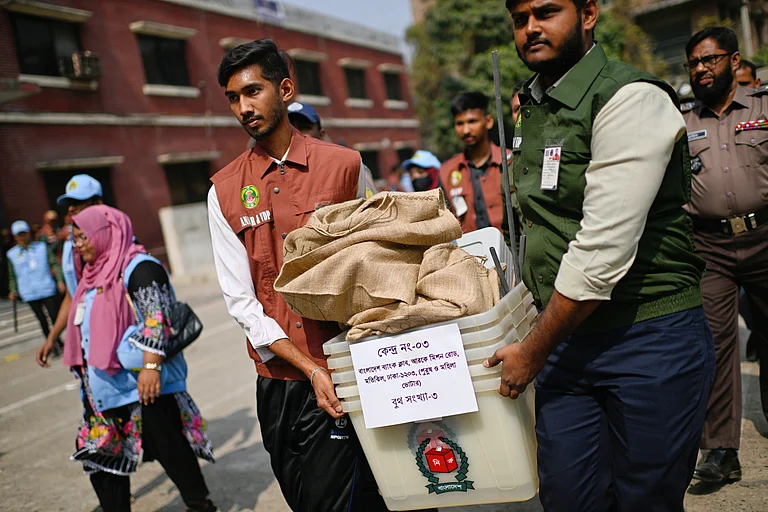On October 2, the Odisha government will roll out ‘Mo Sarkar’ (My Government), easily the most ambitious plan Naveen Patnaik has launched in his five terms in office to ensure the accountability of public officials in delivery of government services. Based on five parameters—team work, technology, transparency, transformation and time limit (the 5Ts)—the scheme involves taking feedback from people on the quality and timeliness of the services and reward or punish officials on that basis. Three of the 5 Ts existed in the Naveen government’s previous term too; the last two were added recently. Police stations and government hospitals have been taken up in the first phase of the programme, which is to be gradually extended to other services.
A Department of 5T has been created to carry out the initiative under the CM’s direct supervision. The charge of this newly created department has been given to the man who is believed to have the CM’s eyes and ears: his trusted private secretary V. Karthikeyan Pandian. The CM will flag off the new initiative by calling up visitors to police stations and hospitals, selected randomly, and get their feedback on the quality of services they receive and the way they are treated in these establishments.
While it is too early to measure its impact on accountability, it has certainly raised expectations among people. “Since the CM himself is monitoring the exercise, I am hopeful the officers would be more responsible and responsive now,” says Gouranga Charan Das, a senior citizen in Bhubaneswar. Adds Chakradhar Swain, a carpenter living in the Salia Sahi slum in the city; “When I went to lodge a complaint at the police station recently, I felt the difference in the officer’s behaviour.”
But not everyone is so sanguine about the Mo Sarkar or 5T initiative. Pointing out that the CM has not attended his weekly grievance cell meeting since 2008, opposition leaders mock his plan of ensuring transparency and accountability. “One of the first things a government committed to transparency should do is to ensure that the RTI Act is followed in letter and spirit. This government has done the opposite,” says RTI activist Pradip Pradhan. “Similarly, how can there be accountability when there is no system in place to ensure it? In the absence of a fixed limit for delivery of a service, accountability is a misnomer. It is all hogwash and meant to fool people.”
The views of sceptics notwithstanding, government officials are a harried lot these days. Long used to sloth and lethargy, they have been on their toes to meet the new demands placed on them by the government even before the Mo Sarkar initiative gets under way. “Most people think we don’t work. Let them come and see,” says Pradip Patra, a government employee. “They would find that we work even harder and longer than those working in the private sector these days.” Whatever else it has done or not done, the new initiative has certainly put fear in the minds of government staff. “There is actually a sixth T that the government has kept under wraps: termination,” says another government employee, requesting anonymity.
The fears are not unfounded. Based on a performance review, scores of government staff have already been relieved of their services as part of the initiative to ensure accountability. Simultaneously, the government has started a massive crackdown on touts who ruled the roost in RTO offices and hospitals. Over 200 of them have been rounded up in the past few days. Sources in the government say the exercise to weed out middlemen from public utilities will continue in the days ahead.
For obvious reasons, any realistic assessment of the outcome of the 5T initiative has to wait a few months, if not years. But for now, one can only hope that it would work because unlike many of the initiatives launched by the Naveen government in the past, this one has been launched at the start of a new term rather than on the eve of an election.
By Sandeep Sahu in Bhubaneswar


























